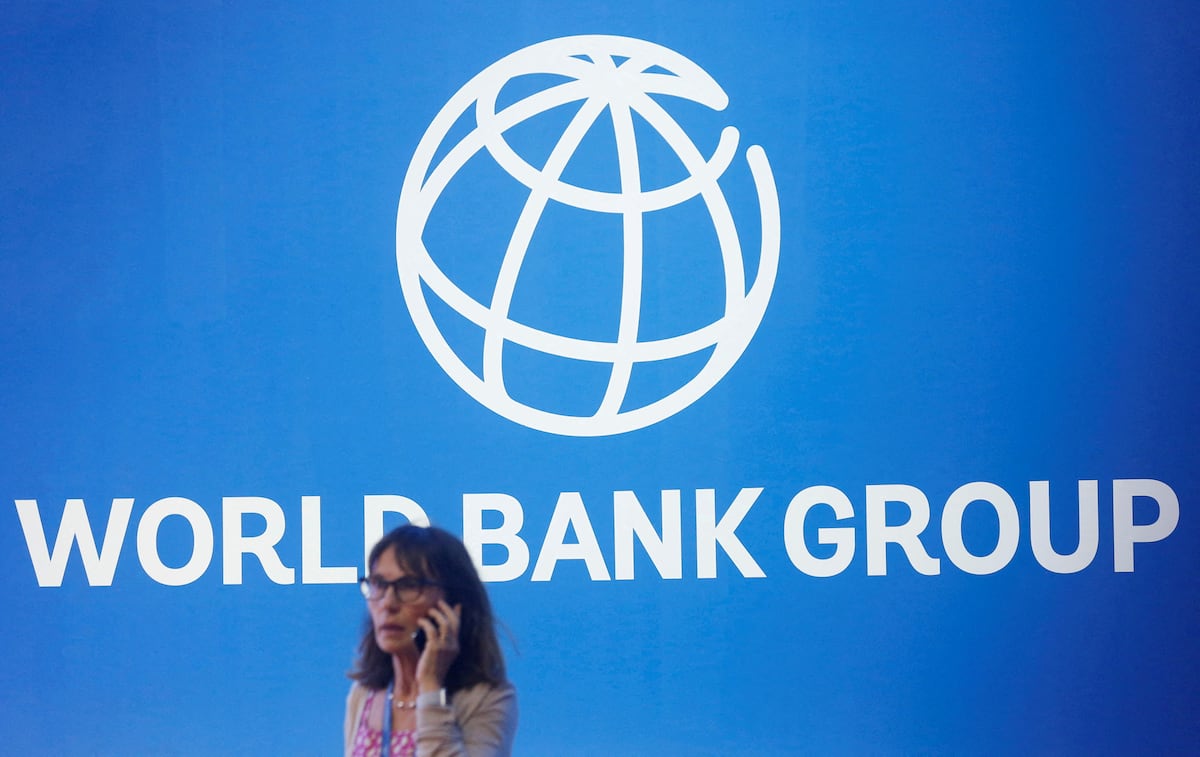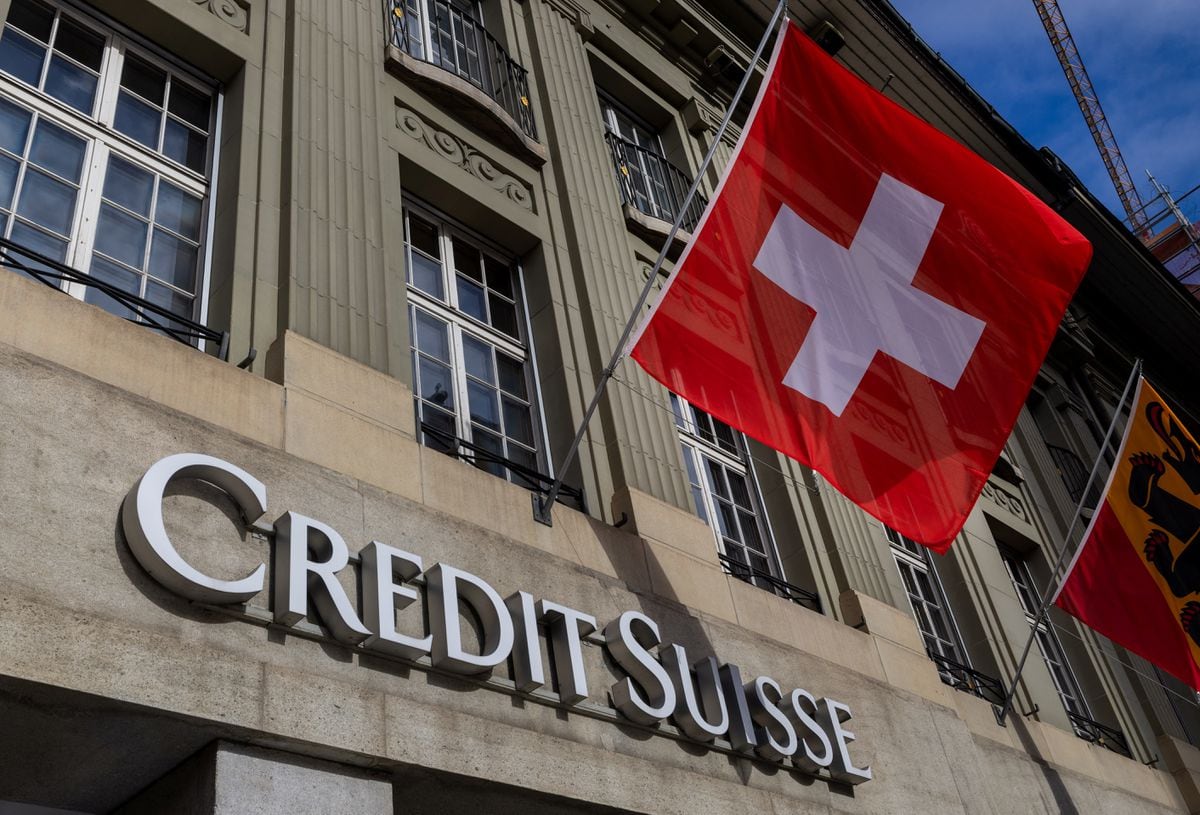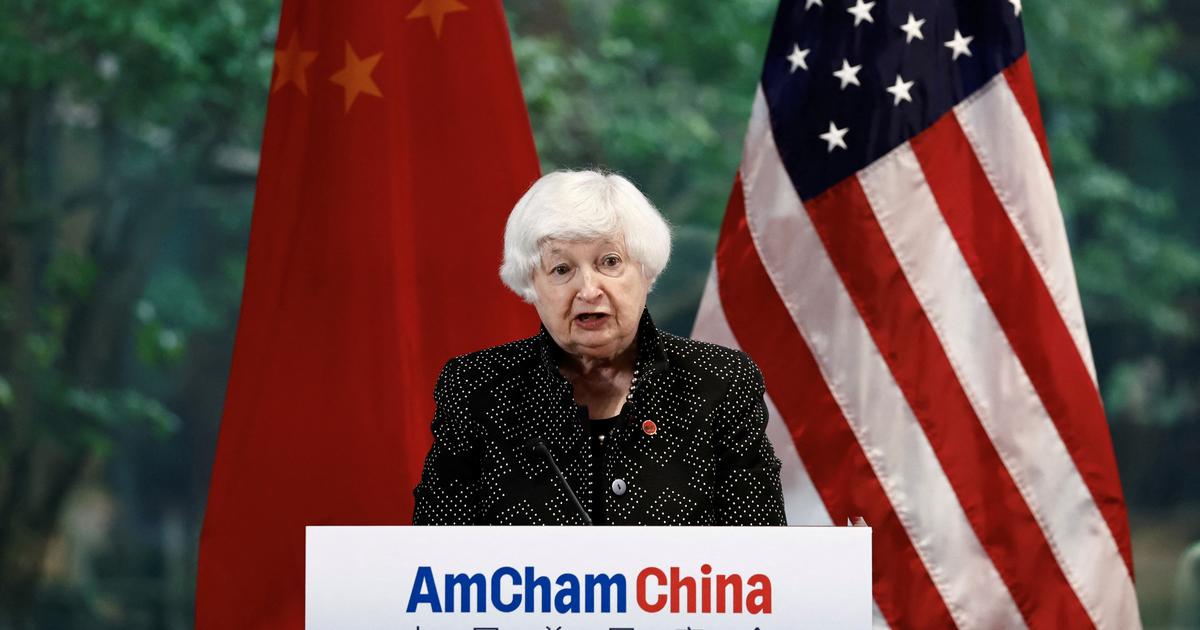The growth engines of the world economy are seized.
A report presented this Monday in Washington by the World Bank indicates that the pandemic and the war in Ukraine have left open wounds in the long-term growth potential of the global economy.
“Soon we could be looking at a lost decade for the global economy,” said Indermit Gill, chief economist and senior vice president for development economics at the World Bank.
The report, titled
Falling Long-Term Growth Prospects: Trends, Expectations, and Policies,
presents the first comprehensive assessment of potential long-term output growth rates after the covid pandemic and the Russian invasion of Ukraine.
The chain of crises, now joined by financial instability, have damaged the potential growth rate of the economy and the prospects for the coming years are poor.
When the World Bank speaks of a lost decade, it refers to a decade of low growth.
The agency graphically points out that these potential growth rates can be considered the "speed limit" of the world economy.
By 2030, that “speed cap” — the maximum long-term rate at which the economy can grow without causing inflation — will fall to its lowest level in 30 years, according to the report, which calls for an ambitious boost from policies. to increase productivity and labor supply, increase investment and trade, and harness the potential of the service sector.
According to the World Bank, almost all the economic forces that have driven progress and prosperity in the last three decades are dissipating.
Consequently, it is expected that between 2022 and 2030 the average potential growth of the global gross domestic product (GDP) will fall by approximately one third compared to the rate of the first decade of this century and will be around 2.2% per year.
In the case of developing economies, the decline will also be sharp: from 6% per year between 2000 and 2010 to 4% per year for the rest of this decade.
These falls would be much more pronounced in the event of a global financial crisis or a recession, World Bank economists warned on Monday in a conference call.
“Recessions tend to reduce potential growth,” according to Franziska Ohnsorge, co-lead author of the report and manager of the World Bank's Outlook Group.
"Systemic banking crises cause more immediate damage than recessions, but their impact tends to fade over time."
“If we think about the consequences of these episodes on potential growth, what we know is that the slowdown we describe in this report could be much more acute if another global financial crisis breaks out,” Indermit Gill explained.
“A banking crisis, especially if accompanied by a recession and if it is systemic, does lasting damage to potential growth through a wide range of channels related to investment uncertainty, job losses, falling productivity ... And of course if banking crises translate into systemic financial events they have even more detrimental results for potential growth”.
The World Bank warns that the current fall in potential growth can have major implications for the ability to address problems such as persistent poverty, inequality and climate change.
“But this decline is reversible.
The speed limit of the world economy can be raised through policies that encourage work, increase productivity and accelerate investment”, says Gill.
The organization's economists consider that potential GDP growth can increase by up to 0.7 percentage points —and reach an average annual rate of 2.9%— if countries adopt sustainable and growth-oriented policies.
“Future generations deserve us to formulate policies that promote strong, sustainable and inclusive growth,” said Ayhan Kose, one of the report's lead authors and director of the World Bank's Outlook Group.
“To revive growth, a bold and collective policy effort must be made today.
At the national level, each developing economy will need to repeat its best record of the last 10 years on a variety of policies.
At the international level, the regulatory response implies stronger global cooperation and a renewed drive to mobilize private capital.”
The report highlights specific policy measures at the national level that can significantly contribute to promoting long-term growth prospects, such as aligning monetary, fiscal and financial frameworks, increasing investment in strategic areas such as transport and energy , sustainable agriculture and manufacturing, reducing trade costs associated with transport, logistics and regulations, increasing participation in the labor force, especially of women, and investing in services to improve productivity.
Follow all the information on
Economy
and
Business
on
and
, or in our
weekly newsletter





/cloudfront-eu-central-1.images.arcpublishing.com/prisa/3FI7KHR4GI7ABUOQDZ3ENWASZQ.jpg)







